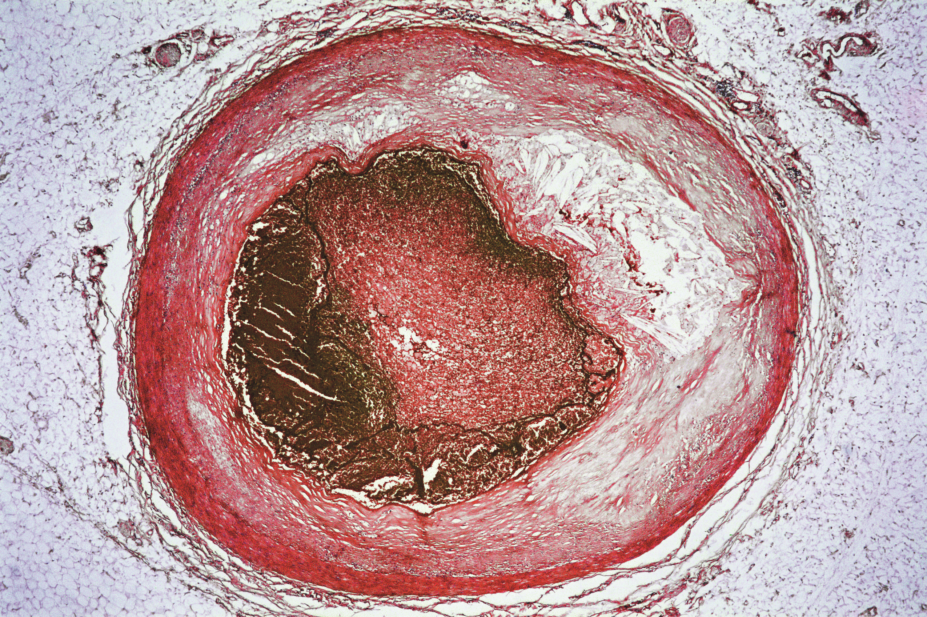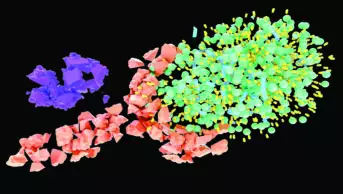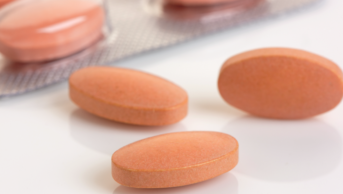
Biophoto Associates / Science Photo Library
Trials of statins in patients with atherosclerosis have shown a linear relationship between reductions in low-density lipoprotein cholesterol (LDL-C) and coronary disease progression, but this has not yet been evaluated for PCSK9 inhibitors.
In a study published in JAMA
[1]
(online, 13 December 2016), researchers randomly assigned 968 patients with coronary disease to either the PCSK9 inhibitor evolocumab or placebo, in addition to statin treatment, for 76 weeks.
The study results showed that patients with coronary disease who took evolocumab achieved significantly lower LDL-C levels (36.6 versus 93.0 mg/dL) as well as significantly greater plaque reduction (0.95% vs 0.05%) compared with those who took placebo.
The team concludes that the findings show that the addition of a PCSK9 inhibitor to statin treatment can result in continued plaque reduction even below widely accepted levels for LDL-C.
References
[1] Nicholls SJ, Puri R, Anderson T et al. Effect of evolocumab on progression of coronary disease in statin-treated patients. JAMA 2016. doi: 10.1001/jama.2016.16951


